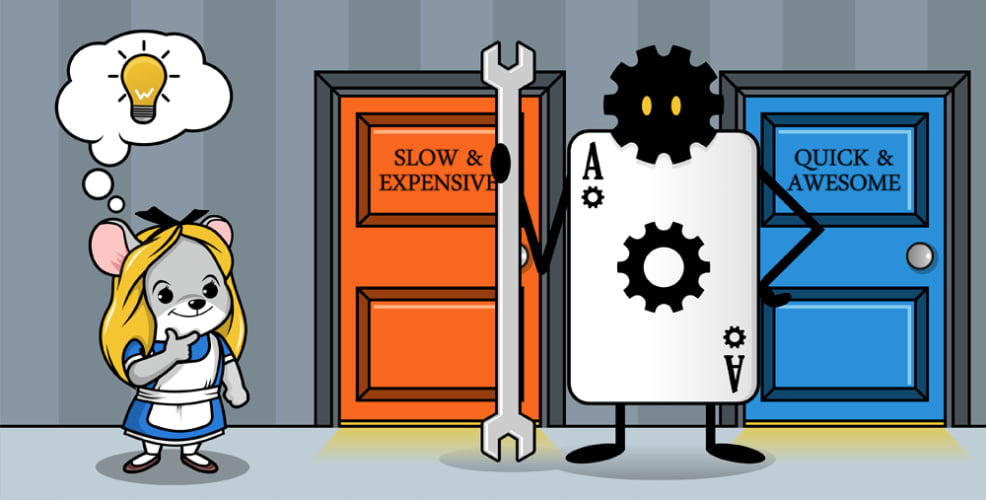
Navigating App Development in 2024: Costs, Timelines, and Strategies for Success
According to recent industry data, developing an app typically takes between 4 to 7 months and costs between $5,000 and $50,000, depending on the app’s complexity. This wide range is due to factors like feature set, design complexity, and platform choice.
Advancements in development methodologies and tools, including low-code platforms and software bots, have played a crucial role in speeding up the process and reducing costs for businesses. For instance, frameworks like React Native and Flutter enable cross-platform development, allowing businesses to launch on both iOS and Android with a single codebase.
Despite these advancements, companies still have challenges when trying to determine the exact cost and duration of app development. Variables such as the level of customization, third-party integrations, and the need for ongoing maintenance can significantly impact the overall investment and timeline. Understanding these factors is vital for managing expectations and budgets effectively.
App Development Process Breakdown
Despite recent efficiencies, the app development process remains intricate. According to a recent industry breakdown, development typically involves seven key stages: Planning, Analysis, Design, Development, Testing, Implementation, and Maintenance. Each stage is critical to the overall success and cost of the project.
1.Planning: This phase involves defining the project scope, estimating costs, and setting a project timeline. It includes gathering initial requirements and creating a project plan that aligns with business goals.
2.Analysis: Detailed requirements are gathered and analyzed to ensure a clear understanding of what the software will achieve. This includes functional and non-functional requirements, which are then documented.
3.Design: During this stage, the app’s architecture is outlined. It includes creating wireframes, mockups, and prototypes to represent the visual design and user interface. Additionally, database design, API structures, and data flows are defined here.
4.Development: The actual coding of the app takes place in this phase. Developers build the backend and frontend components, integrate APIs, and connect the app’s infrastructure. This stage often requires close collaboration between designers and developers to ensure the implementation matches the design specifications.
5.Testing: Comprehensive testing is conducted to identify bugs and issues. This includes functional, usability, performance, and security testing to ensure the app is stable, user-friendly, and secure.
6.Implementation/Deployment: Once testing is complete, the app is deployed to the relevant platforms (e.g., App Store, Google Play). This stage also involves configuring servers and setting up the app’s backend infrastructure.
7.Maintenance: Post-launch, the app requires ongoing support to fix bugs, improve performance, and implement new features based on user feedback. Regular updates and optimizations are key to keeping the app relevant and functional.
Each stage can be further divided into smaller tasks, highlighting the complexity of app development. For instance, the design phase encompasses wireframing, visual design, and user experience considerations, each contributing to the overall cost and timeline
The Problem: The Attention Economy
Competition in today’s saturated app market continues to drive costs. With thousands of apps being published daily, securing user attention has become increasingly difficult. High attrition rates remain a problem, with a significant portion of users abandoning apps shortly after the initial download. This reality underscores the need for comprehensive development strategies to create apps that truly engage users.
Gone are the days when a single developer-designer multitasker could successfully build an app. Now, building an app often requires a multidisciplinary team. The average team size has grown, ranging from 3 to over 100 members, depending on the complexity of the app. Factors like cross-device compatibility, user experience, quality assurance, OS level integration, and backend infrastructure make it essential to work with experienced professionals. While this complexity adds to costs, cutting corners often results in an app that fails to stand out and retain users.
How to Develop Apps Quicker and Cheaper in 2024
Recognising the true costs of app development and setting realistic expectations remain crucial. However, technological advancements have
started to provide new avenues for cost-effective and accelerated development.
WorkingMouse and the Codebots Solution
WorkingMouse has been at the forefront of this change. Unlike traditional development methods, WorkingMouse leverages its Codebots platform to streamline the process. Codebots is an ecosystem of code-writing bots that collaborate with developers and designers to accelerate app creation. In 2024, Codebots continues to be a game-changer, writing an average of 92.68% of our partner’s software.
While bots can’t do everything, they can significantly speed up some of the most time-consuming and costly aspects of app development. By automating parts of the process, Codebots empowers teams to focus on the creative and strategic elements, thereby reducing overall costs and development time. This approach is helping startups, SMEs, and even larger enterprises overcome the challenges of app development in today’s competitive market.




.png)











